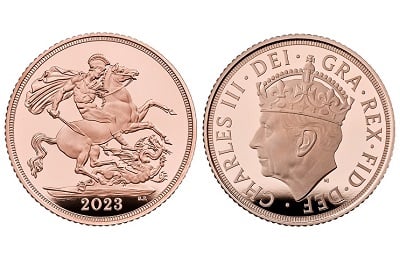What causes the gold price to fluctuate?
Predicting the gold price is not easy, but one of the key things that can help is understanding what causes the gold price to fluctuate. With that knowledge you can look for events or trends in the wider financial world, and begin to make predictions on how they might impact the gold price.
The trading of gold is carried out in a global marketplace, and as such is influenced by an enormous variety of different economic, social, and political factors. This makes it difficult to relate the fluctuations in the value of gold and silver to one single event or circumstance. Political, as much as economic, changes can play a huge role in causing the gold price to fluctuate.
Despite this, there are certain patterns that become evident when we analyse the fluctuations in the value of precious metals. One of the most prevalent themes that we can relate to changes in the value of precious metals is one of the main reasons investors buy precious metals - security.
In the simplest of terms there are a few things that affect the price of gold:
-
Supply
- The amount of gold mined can be affected. Mining companies shut down, mines reach a point where the amount of gold left is not worth the cost to extract it, or new laws means that operations cannot continue. Conversely, new deposits can be discovered, mining methods refined, or investment increased.
-
Demand
- Consumer demand grows and wanes for financial or social reasons.
Gold also has a lot of uses
in technology; new technology can see demand grow. If supply cannot meet demand the price goes up, if supply outstrips demand the price goes down.
- Economic and Political Changes - As discussed below the economy has a big impact on gold's price, and politics affects the economy in sometimes subtle, sometimes obvious ways.
Will the gold price change? Read more about factors influencing the gold price.
What causes the gold price to increase?
At its simplest, high demand causes the gold price to increase. As a physical commodity, it is supply and demand that ultimately sets the price of gold. If demand rises, and there isn't a supply increase to match it, then this causes the gold price to increase. So the question then become what causes gold demand to increase?
Gold is a well-known asset, seen as a symbol of wealth dating back thousands of years. Its history as a valuable asset means that, unlike the vast majority of other financial assets, it is considered to have an intrinsic, tangible value. This means that investors are a lot more confident in the ability of precious metals, such as gold and silver, to protect their wealth.
This is especially true in times of crisis or extreme instability. Political or economic uncertainty can have a hugely adverse impact on investors’ confidence, contributing to poor performance in certain areas of the economy like stocks or the housing market. In such an event, investors look to the one asset that they trust to protect their wealth from economic collapse - gold.
Throughout history there have been plenty of events that have illustrated this. The 2008 financial crisis is the standout example, with gold jumping up to record levels of over £1,150 per troy ounce as investors feared complete global economic meltdown. Although the price fell back a bit over the next few years, recent events provide us with plenty of evidence that threats to our security - be they financial, medical, incidents of terrorism - are often what makes the gold price increase.
In the past five years there has been political upheaval in the form of Brexit, the increasing rhetoric of trade wards and conflict between countries like China, Russia, North Korea and Iran with the US and other Western allies.
More recently, the global economic slowdown has been hampering economies. The outbreak of the global pandemic in 2020 led to recessions, and now inflation. Even in 2022 the economic outlook for the world is far from rosy.
Precious metals historically thrive in such circumstances and in this latest instance it has certainly proved to be the case. A risk-off attitude from investors has seen gold demand rise, and this in turn has caused the gold price to rise.
What causes the gold price to go down?
In the same way that precious metals benefit from crisis or instability, a lack of demand causes the gold price to go down. Reduced demand or improving supply helps ease pressure, and miners accept lower gold prices as a result.
The price of gold tends to drop when investors are feeling more secure. Security nurtures investors’ appetite for risk - an environment described as risk-on. When things are going well, investors will feel more confident about the success of more speculative investments, chasing the potential for higher yields instead of running for the shelter of ‘safe-haven assets’. The biggest pitfall of gold and silver in such times is that they don’t offer regular yields. Investors looking to make a regular income from their assets might be more attracted to speculative investments in private companies which, while often prone to failure, also offer the potential for large returns.
Oversupply of paper gold can have an adverse effect on the gold price too. Shares in gold ETFs and gold futures allow investors to hedge their wealth through investing in gold, without ever actually taking physical possession of any metal. While this can work for some investors, there is an enormous risk involved as it is highly unlikely that the amount of shares or futures contracts issued can be matched by the equivalent amount of physical gold. The industry works on the assumption that investors won't request physical delivery of their gold, but will be content with the profits made when selling on these gold-backed paper assets. This means that it is possible for more gold to be sold than actually exists. Following the basic economic principle of supply and demand, then, the gold price can be caused to fluctuate by the issuing of gold futures and shares. While large-scale supply has the effect of pushing down the price of physical gold, there are many investors who believe that should the paper gold industry ever collapse, the price of physical bullion would soar.
- How To Buy Gold
- How to Buy?
- Payment Options
- Delivery Options
- Gold Storage
- Storage at Brink's
- Gold Investment Guide
- Why buy gold?
- Is gold a good investment?
- Why physical gold?
- Best time to buy gold?
- Gold bars vs coins?
- Gold vs Silver
- Gold - Silver Ratio explained
- VAT on bullion
- CGT on bullion
- Legal tender coins
- Top 5 Gold Investments
- Top 5 Silver Investments
- Gold vs ISAs
- Gold vs Buy-to-Let
- Gold vs FTSE 100
- Gold vs Bitcoin
- Where to buy gold?
- Why buy from us?
- Where to sell gold?
- Coin Shops
- Gold Price Forecasts
- Top 10 Gold Producers
- Top 10 Gold Reserves
- Gold Britannia vs Sovereign
- Britannia coin designs
- Sovereign coin designs
- Sovereign Mintages
- Sovereign mint marks
- British coin specs
- What is a proof coin?
- Royal Mint bullion
- The Queen's Beasts
- Royal Mint Lunar Coins
- Bullion Refiners
- British coin mints
- Krugerrands
- Gold Tola - India & Pakistan
- Bullion Index











